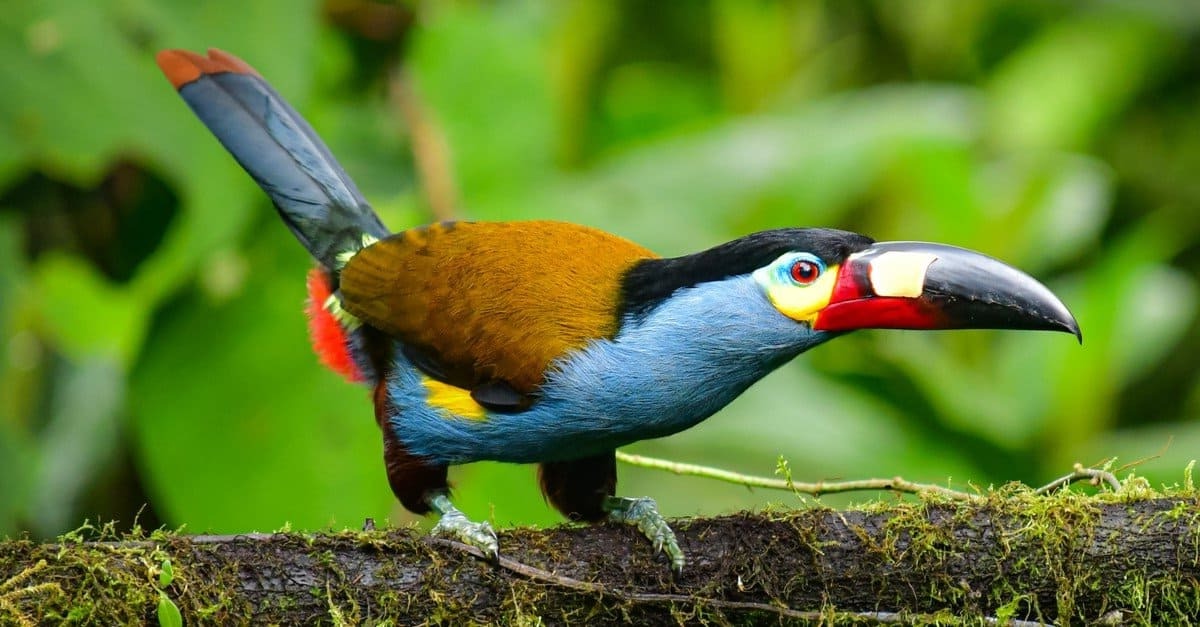
Ever wondered why toucans have such massive beaks? Or how they manage life in the treetops with such vibrant colors? Toucans are among the most fascinating creatures in the animal kingdom, with their oversized, colorful beaks and lively demeanor. These birds are not just a treat for the eyes but are also full of surprises. From their social behavior to their diet, toucans are a bundle of wonders wrapped in feathers. If you're curious about these exotic birds, you're in for a treat. Let's dive into the world of toucans and uncover some facts that are as colorful and intriguing as the birds themselves. Ready to be amazed by what these feathered friends have to offer?
Key Takeaways:
- Toucans have unique bills that help them survive in their tropical forest habitats. They are social birds, and their colorful appearance serves a purpose beyond just looking pretty.
- Toucans face threats from habitat destruction and climate change, making conservation efforts crucial for their survival. They are not just beautiful birds; they are also intelligent and resilient.
What Makes Toucans Unique?
Toucans are among the most recognizable birds in the world, thanks to their large, colorful bills. But there's more to these birds than just their striking appearance.
-
Toucan bills can grow up to half their body length, making them one of the birds with the largest bill-to-body size ratio. Despite their size, these bills are surprisingly light due to their hollow structure.
-
These birds are native to Central and South America's tropical forests. Their vibrant bills aren't just for show; they play a crucial role in their survival, from feeding to thermoregulation.
-
Toucans are fruit-eaters, primarily feasting on berries and nuts. Their long bills help them reach fruit on branches that are too small to support their weight.
The Social Life of Toucans
Toucans are quite social creatures, often seen in small flocks. Their social behavior is fascinating and plays a significant role in their daily lives.
-
They communicate using a series of calls and noises that can sound like croaks and rattle noises. These sounds help them keep the flock together and warn each other of danger.
-
Breeding pairs of toucans are monogamous, with both parents sharing the responsibility of raising their young. This includes feeding and protecting the nestlings.
Toucans and Their Habitat
The habitat of toucans is as vibrant and diverse as the birds themselves. However, these habitats are under threat, which in turn, threatens toucan populations.
-
Toucans reside in rainforests, savannas, and shrublands. They prefer dense canopies where they can easily hop from tree to tree.
-
Deforestation and habitat destruction are significant threats to toucan populations. Conservation efforts are crucial to ensure their survival.
Interesting Toucan Facts
Beyond their colorful appearance and unique behaviors, there are plenty of interesting tidbits about toucans that many people might not know.
-
Some toucan species can live up to 20 years in the wild, a testament to their resilience and adaptability.
-
The toucan's bill has radiating blood vessels that help regulate body temperature, functioning almost like a thermal radiator.
-
Despite their size, toucans are adept flyers, though they prefer to hop from branch to branch when in dense forests.
-
Toucanets and Aracaris are smaller relatives of the toucan, sharing many of the same habitats and behaviors but differing in size and coloration.
-
The Toco Toucan has the largest bill of any toucan species, contributing to its popularity and recognition.
-
Toucans are omnivores, occasionally eating insects, small lizards, and eggs, diversifying their primarily frugivorous diet.
-
In some cultures, toucans are seen as spiritual messengers or symbols of playfulness and intelligence.
-
Toucan Sam, the mascot for Froot Loops cereal, is perhaps the most famous toucan, showcasing the bird's appeal beyond the animal kingdom.
-
Zoos and aviaries play a significant role in toucan conservation, providing a safe haven for species affected by habitat loss and educating the public about these magnificent birds.
-
Toucan feathers are not as colorful under ultraviolet light, which is how they appear to other toucans; this helps them identify each other and select mates.
-
The toucan's bill is not just for show; it's used to peel fruit, intimidate rivals, and deter predators.
-
Climate change poses a new threat to toucans, affecting their habitat and food sources. Adaptive measures and conservation are more important than ever.
-
Finally, toucans are curious and intelligent, capable of problem-solving and using tools, traits that endear them to bird enthusiasts and researchers alike.
A Final Peek at Toucans
Toucans, with their vibrant beaks and lively demeanor, have captured our hearts and curiosity. We've journeyed through their world, uncovering fascinating aspects of their lives, from their unique anatomy to their role in ecosystems. These birds aren't just a splash of color in the rainforest; they're key players in their habitats, spreading seeds and supporting forest regeneration. Their social behavior and vocalizations add another layer of intrigue, making them standout characters in the animal kingdom. As we close this chapter, let's carry forward a greater appreciation for these remarkable birds and the wonders of nature they represent. Remember, every creature has its tales and secrets, waiting for us to discover and learn from. Toucans remind us of the beauty and complexity of our world, urging us to protect and cherish it.
Frequently Asked Questions
Was this page helpful?
Our commitment to delivering trustworthy and engaging content is at the heart of what we do. Each fact on our site is contributed by real users like you, bringing a wealth of diverse insights and information. To ensure the highest standards of accuracy and reliability, our dedicated editors meticulously review each submission. This process guarantees that the facts we share are not only fascinating but also credible. Trust in our commitment to quality and authenticity as you explore and learn with us.


